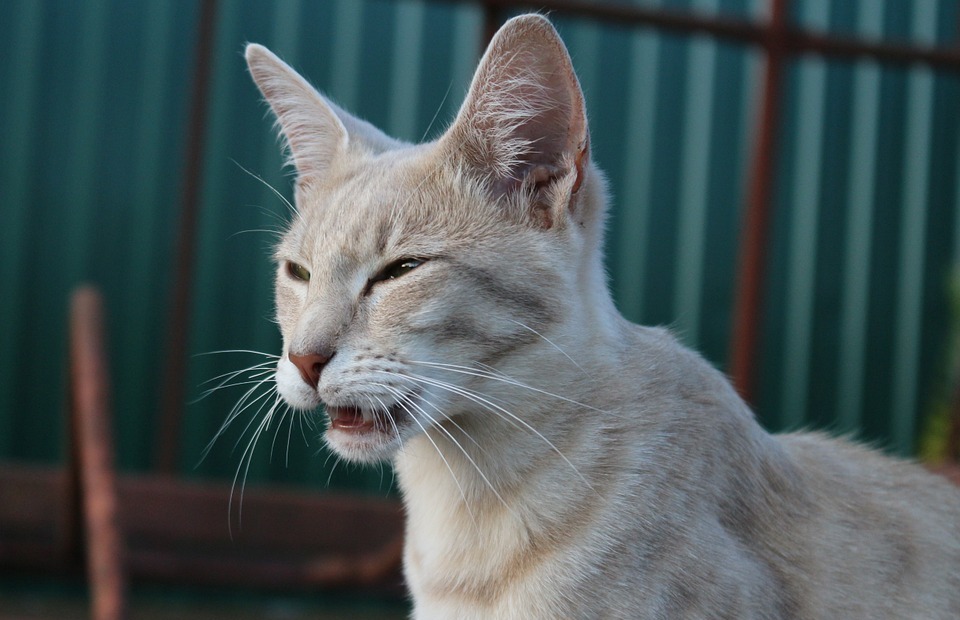This article explores the persistent belief that mums are harmful to cats. It delves into the origins of this myth, examines scientific evidence, and provides a balanced perspective on potential risks and benefits. From the impact of specific ingredients to the dangers of ingestion, we’ll offer a comprehensive overview, addressing common concerns and offering practical tips to ensure a safe and harmonious environment for both cats and humans.
Part 1: The Origins of the Myth

1.1 Historical Perspectives and Folklore
- Historically, strong scents were often associated with negative effects on animals, including cats. This stemmed from a lack of scientific understanding and the widespread use of potent herbs and remedies for various ailments.
- Folklore often portrayed cats as highly sensitive creatures capable of detecting harmful substances, further reinforcing the belief that strong scents could be detrimental to their health.
- For example, the use of strong-smelling herbs like rosemary, thyme, and peppermint for medicinal purposes might have contributed to the association of certain scents with harm to cats. While these herbs are generally safe for humans, their concentrated forms can be toxic to cats.
1.2 The Rise of Misinformation
- With the advent of the internet and social media, misinformation about cats' sensitivity to various substances has spread rapidly.
- Anecdotal observations and speculation have often been presented as scientific evidence, further perpetuating the myth of mum's harmfulness to cats.
- It is essential to rely on credible sources and consult with veterinarians for accurate information regarding cats and their well-being.
Part 2: Understanding Cat Physiology and Sensitivity

2.1 A Highly Developed Sense of Smell
- Cats possess a highly developed sense of smell, with approximately 200 million olfactory receptors, compared to humans' 5 million.
- However, their olfactory receptors are different from those of humans, meaning they might be more sensitive to specific scents while being less sensitive to others.
- This difference in sensitivity does not necessarily translate to toxicity; it simply means they perceive scents differently.
2.2 The Role of Pheromones
- Cats communicate through pheromones, chemical signals that trigger specific behaviours and reactions.
- These pheromones can be found in urine, saliva, and even the scent of their fur. They play a crucial role in social interactions, territorial marking, and mating.
- While strong scents can interfere with cats' ability to detect these pheromones, mum's fragrance is generally not potent enough to disrupt their communication system.
Part 3: The Impact of Mum's Fragrance on Cats
3.1 Common Ingredients and Their Potential Effects
- Mums often contain a blend of fragrances derived from flowers, fruits, and spices. These scents are generally not toxic to cats but can trigger individual reactions.
- Certain ingredients, such as citrus oils, peppermint oil, and tea tree oil, can be harmful to cats due to their potential for skin irritation, respiratory problems, and neurological issues.
- It is important to note that the concentration of these ingredients in mum's fragrance is usually low, making it less likely to cause serious harm.
3.2 The Importance of Individual Variation
- Each cat is unique, with varying sensitivities to different scents. While some cats may be indifferent to mum's fragrance, others might show aversion or even distress.
- Factors such as age, breed, and individual personality can influence a cat's response to scents.
- It is crucial to observe your cat's behaviour and adjust accordingly, providing a safe and comfortable environment for them.
3.3 Avoiding Direct Application
- Applying mum's fragrance directly to your cat's fur is strongly discouraged. Their skin is delicate, and the fragrance can irritate or cause allergic reactions.
- Focus on creating a pleasant atmosphere in your home through subtle means, such as using diffusers or placing scented candles in areas where your cat does not frequent.
Part 4: Potential Risks and Precautions
4.1 The Dangers of Ingestion
- Cats are naturally curious and may be tempted to investigate cleaning products, including mums. This can be extremely dangerous, as they often contain chemicals that can be toxic to cats.
- Even small amounts of mum's fragrance ingested can cause serious health problems, such as vomiting, diarrhoea, lethargy, and organ damage.
- It is essential to store all cleaning products securely, out of reach of your cat, and immediately clean up any spills.
4.2 Essential Oil Toxicity
- While some essential oils are safe for humans, they can be toxic to cats, even in diluted forms. This is because they lack the necessary liver enzymes to break down certain compounds found in essential oils.
- Essential oils such as tea tree oil, peppermint oil, and citrus oils are particularly harmful to cats.
- Avoid using essential oils around your cat, and keep them out of their reach.
4.3 Allergies and Skin Irritations
- Some cats may be allergic to specific ingredients in mum's fragrance, such as certain fragrances or preservatives.
- This can lead to skin irritation, sneezing, coughing, or even respiratory problems.
- If you suspect your cat is allergic to mum's fragrance, discontinue use immediately and consult with a veterinarian for proper diagnosis and management.
Part 5: Creating a Safe and Harmonious Environment
5.1 Choosing Safe Products
- Opt for fragrance-free or unscented cleaning products or those specifically labelled as "pet-safe."
- Avoid using strong-smelling air fresheners, candles, or other products that may irritate your cat.
- If you choose to use essential oils, select pet-safe options, such as lavender, chamomile, or catnip. Always dilute them significantly before use, and keep them out of your cat's reach.
5.2 Proper Storage and Handling
- Store all cleaning products and essential oils in sealed containers, out of reach of your cat.
- Never leave cleaning products unattended on surfaces that cats may access.
- Immediately clean up any spills or accidents to prevent potential exposure.
5.3 Observing Your Cat's Behaviour
- Pay close attention to your cat's behaviour after exposure to mum's fragrance or cleaning products. Look for signs of sneezing, coughing, itching, lethargy, vomiting, or diarrhoea.
- If you notice any unusual behaviour or signs of distress, consult with a veterinarian immediately. They can assess the situation and recommend appropriate treatment or management strategies.
Part 6: Exploring the Potential Benefits of Mum's Fragrance
6.1 Creating a Pleasant Atmosphere
- Mum's fragrance can create a relaxing and inviting atmosphere for both humans and cats. The pleasant scents can help to reduce stress and anxiety in both cats and their owners.
- However, it's important to remember that cats have different sensitivities, and what is pleasant for one human might be overwhelming for another, including a cat.
- Focus on creating a calming environment through subtle means, such as using essential oils that are generally considered safe for cats (like lavender or chamomile) and ensuring proper ventilation.
6.2 Enhancing Bonding and Affection
- Mum's fragrance can be a subtle way to enhance bonding between cats and their owners. The familiar scent can provide a sense of security and comfort for cats, strengthening the bond with their human companions.
- However, it's essential to avoid overwhelming your cat with strong scents and focus on positive interactions and consistent care to build a strong relationship.
6.3 Reducing Stress and Anxiety
- Certain scents, such as lavender and chamomile, have calming effects on cats, reducing anxiety and stress levels.
- Mum's fragrance may contain these calming scents, but it's crucial to choose products carefully, ensuring they are free of potentially harmful ingredients.
- A peaceful and stress-free environment is crucial for a cat's overall well-being. Providing a safe space, plenty of enrichment opportunities, and consistent care can do more to reduce stress than any fragrance.
Part 7: FAQs
Q1: Are there specific mums that are safe for cats?
A1: While there are no mums explicitly labelled as "pet-safe," some contain fewer potentially harmful ingredients. Fragrance-free or unscented mums are generally the safest option for cats. It's always best to consult with a veterinarian or a pet-specific product guide for further guidance.
Q2: Can mum's fragrance cause long-term health problems in cats?
A2: In most cases, mum's fragrance isn't considered a major health risk to cats, particularly when used in moderation and with proper precautions. However, prolonged exposure to strong fragrances, especially those containing potentially toxic chemicals, could contribute to respiratory problems, allergies, or skin irritation.
Q3: What if my cat shows signs of a reaction to mum's fragrance?
A3: If you notice any unusual behaviour or symptoms in your cat after exposure to mum's fragrance, such as sneezing, coughing, itching, lethargy, or vomiting, discontinue use immediately and consult with a veterinarian. They can assess the situation and recommend appropriate treatment or management strategies.
Q4: Can I use essential oils in a diffuser with my cat present?
A4: It's generally not recommended to use essential oils in a diffuser with your cat present. Essential oils are potent and can be toxic to cats, even in small amounts. If you must use essential oils, choose pet-safe options, dilute them significantly, and ensure your cat is in a well-ventilated area or not present in the room.
Q5: What are some tips for preventing my cat from ingesting cleaning products?
A5: Store all cleaning products in secure cabinets or containers out of reach of your cat. Clean up spills immediately and avoid leaving products unattended on surfaces that cats can access.
Q6: Is it okay to spray mum's fragrance directly on my cat?
A6: It's generally not advisable to spray mum's fragrance directly on your cat. Cats have sensitive skin and can react negatively to fragrances. Always err on the side of caution and avoid applying any scented products directly on your cat's fur.
Q7: How can I make my home environment safer for my cat?
A7: Use fragrance-free or pet-safe cleaning products, avoid strong-smelling air fresheners and candles, store cleaning products securely, and clean up spills immediately. Be mindful of your cat's behaviour and consult with a veterinarian if you have any concerns.
Everyone is watching

Are Cat Ribs Flexible? Understanding Their Anatomy
CATS & KITTENSThis article delves into the fascinating world of feline anatomy, exploring the flexibility of cat ribs and ho...

Can Cats Eat Bananas? (Everything You Need to Know)
CATS & KITTENSThis article dives into the intriguing question of whether cats can safely enjoy the sweet, yellow fruit, bana...

Cat Lifespan: How Long Do Cats Live?
CATS & KITTENSThis comprehensive guide explores the factors influencing the lifespan of our feline companions, providing ins...

Can Cats Get COVID-19? What You Need to Know
CATS & KITTENSThis article will delve into the fascinating world of feline COVID-19 susceptibility. We'll explore whether ca...

Can Cats Eat Eggs? A Complete Guide to Egg Safety for Your Feline Friend
CATS & KITTENSWhen it comes to treating our furry companions, we all want to ensure we're doing what's best for them. Eggs...
